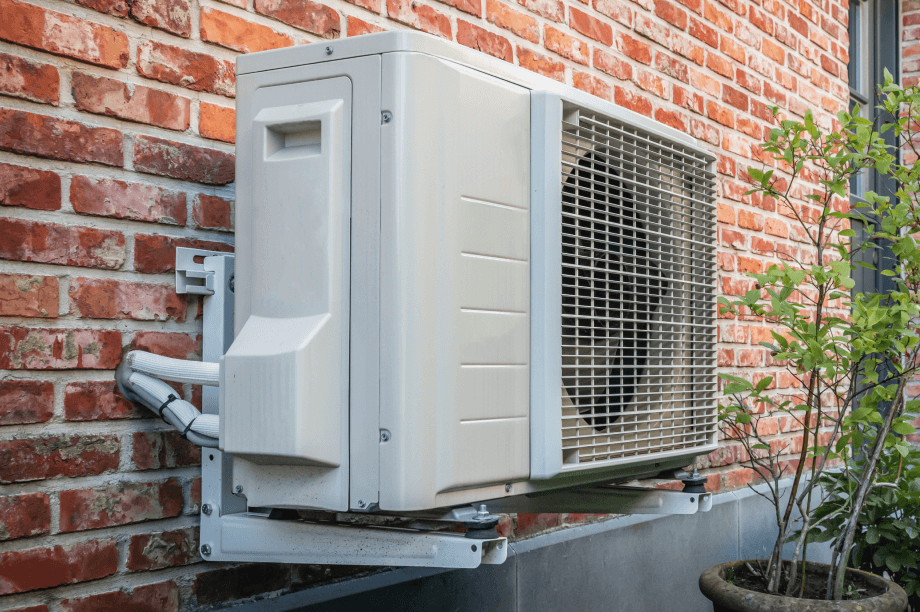
Renovating? Make sure energy efficiency is on your list
Along with beautifying your home, making energy-efficiency upgrades can add value for years to come.
Between more time spent at home, less money spent on leisure activities and a continued low-interest rate environment, many Ontarians are renovating. In fact, a recent study shows that Canadians spent a whopping $80 billion on home improvements in 2020.
If you want to make your space more livable and add to your home’s resale value, you can’t afford to ignore energy efficiency. Here’s why.
Add value with energy efficiency
When planning your renovation, it’s tempting to focus only on surface upgrades such as stone countertops or new flooring. While these upgrades can undoubtedly make your home more appealing to potential buyers, it’s also important to consider some of the less visible upgrades that make your home more energy efficient and reduce energy costs in the long run.
Along with the near-term benefits of increased energy efficiency to your home’s comfort and electricity bills, making energy efficiency a priority in your renovation plans may also add to your home’s value. With a growing emphasis on environmental consciousness, energy-efficient homes are becoming increasingly popular.
Not only will building or renovating an energy-efficient home help reduce utility bills and maintenance expenses, but this can also provide many other benefits, including improved quality of life and enhanced in-home comfort, such as being able to control your home’s temperature, lights and sound with smart technology.
So, which energy-efficiency renovations make sense for you? Here are some upgrades with the biggest bang for your buck that will have both short- and long-term benefits.
Insulate your home
Insulation limits the heat transfer between the inside and outside of your home, which makes it critical to increasing the comfort of any home. A well-insulated house, including basements and attics, will also help cut your energy costs.
As you explore insulation options, you’ll want to keep an eye on the R-value which tells you how effective the insulation is. The R-value is measured by the thickness of the material and how well it limits heat transfer. The higher the R-value, the better the resistance to heat loss (and the better the savings too).
Before moving forward with insulation, you should reach out to a certified energy advisor (CEA).
A CEA can help you determine what type of insulation is right for your home. The advisor can also provide an estimate of how much insulation you’ll need and where to put it. This will help ensure you are well informed before you buy.
Replace that aging HVAC
Home heating and cooling systems have a defined lifespan. Furnaces and central air conditioners typically last approximately 15 to 20 years and boilers may last a few years longer.
Replacing your home's heating, ventilation and air conditioning (HVAC) system is a big undertaking that requires expertise. The first step you should take is to find a qualified, licensed contractor. This person can help you make the best purchase decision for your home and your needs. In Ontario, HVAC contractors must be licensed and registered with the Technical Standards and Safety Authority. A quick search of the Heating, Refrigeration and Air Conditioning Institute of Canada (HRAI) website can help you locate a licensed contractor near you.
It’s important to get several written estimates from different contractors. Each contractor should assess the size, construction and layout of your home and undertake a heat loss calculation when providing you with options. The contractor should assess if the ductwork is adequate to meet the airflow needs of your new equipment. The estimate should include information on the recommended equipment, and efficiency and warranty details. In addition, your chosen contractor should agree to remove and dispose of your old furnace in compliance with all environmental laws.
It might make sense to upgrade your entire HVAC system (including your air conditioner) when buying a new furnace. You may also want to consider an air filtration system and a humidifier to improve your home comfort. Many contractors will bundle the installations together and help you pick the most efficient system for your home.
With both furnaces and air conditioners, it's best to look for ENERGY STAR®- certified models, which use up to six per cent less energy than other models.
Upgrading an old HVAC system will allow you to keep your electricity bills in check, enhance your comfort, and potentially increase your home’s overall value.
Heat Pumps
Installing a heat pump is a great way to save energy and reduce GHG emissions over the long term. A heat pump moves heat from one area to another, typically using an electromechanical compressor. This means it can be used to heat up and cool down any living space. Refrigerators and air conditioners operate on the same principle.
Air-source heat pumps save energy by using the refrigeration cycle to move heat into and out of your home instead of burning fuel to create heat. Cold-climate air-source heat pumps are specially designed to extract heat from outdoor air at temperatures as low as -25°C. As the outside air temperature drops; however, so does the heat pump's ability to pull heat out of the air and the efficiency of these units can decline. Even in a cold snap, though, air-source heat pumps are still more efficient than electrical heating systems and can be more cost-effective than oil and propane heaters.
Energy Efficient Windows
When deciding which windows to buy, make sure you physically inspect and operate the options you are considering. Windows should last at least 20 years, so you want to know that the window operates smoothly from the get-go.
Undertaking renovations is exciting, especially when you can enjoy the benefits of your upgrades for years to come. So, even if energy-efficiency upgrades may not be as exciting as a renovated kitchen or bathroom, remember the significant comfort as well as the short- and long-term financial benefits they will provide.



